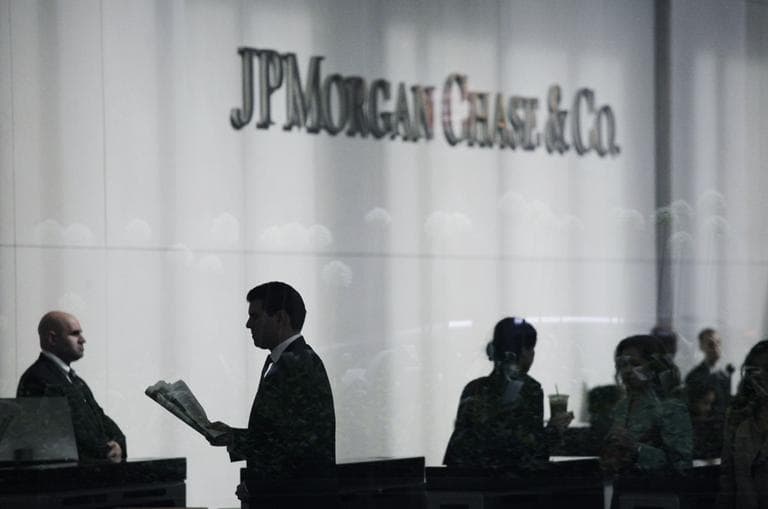Advertisement
No More Too Big To Fail?
With JP Morgan’s Jamie Dimon on the hot seat, we look at the loud call to fix American banking by breaking up the biggest banks.

JP Morgan Chase chief Jamie Dimon in the hot seat today before Congress, apologizing for the high-risk trading fiasco that cost his bank more than $2 billion. A lot of serious players don’t want an apology.
They want Dimon’s bank broken up. And not just JP Morgan. Citigroup. Bank of America. Wells Fargo. And watch out Morgan Stanley. Goldman Sachs. They’ve been called too big to fail, too big to manage, too big to regulate, too complex to understand, too risky to exist. And when they shake, you pay.
This hour, On Point: the call to break up – make smaller – America’s biggest banks.
-Tom Ashbrook
Guests
Nela Richardson, senior economics analyst for Bloomberg Government.
James Kwak, professor at the University of Connecticut Law School. He with economist Simon Johnson – at “The Baseline Scenario.”
Peter Wallison, fellow in financial policy studies at the American Enterprise Institute.
C-Segment: Temple Grandin Commencement Address
From Tom's Reading List
Wall Street Journal "Lawmakers are set to grill J.P. Morgan Chase & Co. chief Jamie Dimon on Wednesday over how the largest U.S. bank was able to retain losses of more than $2 billion from credit derivatives trades and whether the problems it highlights are enough to push policy-makers to break up large financial institutions."
Reuters "A need to break up big banks is one of the several lessons policy makers should have learned from the financial crisis that have either been ignored or forgotten, according to Phil Angelides, who chaired the congressionally appointed Financial Crisis Inquiry Commission."
Bloomberg "The Dodd-Frank Wall Street reform act makes a promise: no more bailouts. It’s hard to find fault with the politics of this promise, and its economics seem promising as well. In theory, a financial firm without a state backstop will be more responsible. Unfortunately, this may not be what actually happens."
This program aired on June 13, 2012.
